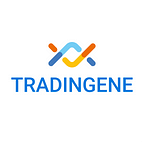Sunday reading. How Waves smart contracts will be working in Tradingene platform
The first iteration of Waves smart contracts just has been activated on Waves’ TestNet. It has been announced at Friday, 04th of May. https://docs.wavesplatform.com/technical-details/waves-contracts-language-description.html
“Waves’ smart contracts will initially include account and token controls, providing functionality for implementing the most-needed scenarios like multi-signature wallets, atomic swaps, 2-factor authorization as well as more elaborate protections for coins,” commented Ilya Smagin, head of development for smart contracts. “We will also introduce a data transaction — a way to post oracle data to blockchain, which will be available from within our smart contracts code”.
Waves’ initial release will allow the community to test non-Turing complete contracts, which will enable various account controls and other functionality.
After a series of high-profile problems with Ethereum’s smart contracts, Waves has taken a carefully-considered approach to implementation, with phased rollout, predictable computational overheads and fixed fees.
“It is really important to do this right. Non-Turing complete contracts will cover a large proportion of use cases, including smart accounts and smart tokens. These will be available from the Waves client for all users and will not require any specialist knowledge or expertise,” added Waves CEO and founder, Sasha Ivanov.
Only when these features have been thoroughly tested and activated on the main net will fully Turing-complete contracts follow.
Smart contract functionality will be activated in May, pending approval of the new code by miners under the Waves Feature Activation Protocol.
Tradingene, the new ready-to-use Blockchain-based platform that allows investing in trading algorithms, will be one of the first projects to implement Waves’ smart contracts.
Tradingene smart contracts effectively manage the relationship between creators and investors throughout the auction process and the investment period. The contracts also allow TNG token holders and algorithm creators to agree upon success fees and other criteria of auctioned algorithms.
Tradingene announces smart contracts on Waves Platform
Waves smart contracts will enable the auction of trading algorithms and therefore one of the unique functions of the Tradingene platform will be realized.
During the auctions, the proposed amounts for investment and the success fee paid to the creators of the algorithms will be settled and recorded in the blockchain which demonstrates the transparency of the auctions and the anonymity of the participants identities. The smart contract records the chaosen algorithm, the size of the investment, the accepted success fee and the conditions for disconnecting from the algorithm.
Using the Waves platform for both token issuance and smart contracts, trading algorithms can be sold as an investment product, providing profitable tools for investing in cryptocurrency and other assets. We, Tradingene, strongly believe this will form the basis for a large community of both algorithm creators and investors, all benefiting from the growth in the use of trading algorithms as an investment product.
SMART CONTRACTS + WAVES
Smart contracts will bring a slew of new additions and added benefits to the Waves ecosystem.
For starters, smart contracts will allow for multi-signature wallets, which cannot be controlled by simply one person alone. In order to make a transaction, the necessary parties must provide their private keys at the same time. Additionally, two-factor authentication will also be introduced — meaning private keys will also be combined with hardware devices or secondary private keys.
Unlike other similar blockchains, Waves smart contracts do not use gas for non-Turing complete smart-contracts, which means that fixed costs are always known upfront. Compared to Ethereum, which people mainly use for Initial Coin Offerings because of its ability to create tokens, Waves is significantly more simple, efficient and cost-effective — for essentially the same service.
Additionally, with Ethereum, tokens aren’t actually held in users’ Ethereum addresses. Rather, they’re registered to a smart contract and every time you move them, you’re really just updating the information that smart contract records. Waves tokens, however, are like WAVES itself — meaning they are treated exactly the same and are held in your address, while the platform still supports token creation in the core and from the standard Waves wallet. In layman’s terms, Waves makes life lot easier for end users.
Furthermore, the tokens you create can immediately be distributed and traded on Waves decentralized exchange, DEX, with no further work. All-in-all, it’s a far more streamlined and useful approach.
Atomic swaps will also be added, which will allow parties to exchange cryptocurrencies hosted on different blockchains without the need for trust. The Waves team is already prepping for the implementation of currently-in-development atomic swap functionality and is actively recruiting the best researchers for the project. Once complete, integration of atomic swaps will allow ERC-20 tokens to be traded on the Waves decentralized exchange, DEX.
Additionally, smart contracts on Waves will allow for token freezes, meaning users will be able to introduce parameters which prevent buyers from selling or transferring tokens from their address for a specified amount of time — effectively freezing the token. This will be possible for any type of transaction.
#tradingene #tradingeneration #cryptocurrency #blockchain #ico #waves #TokenSale #crypto #bitcoin #token
